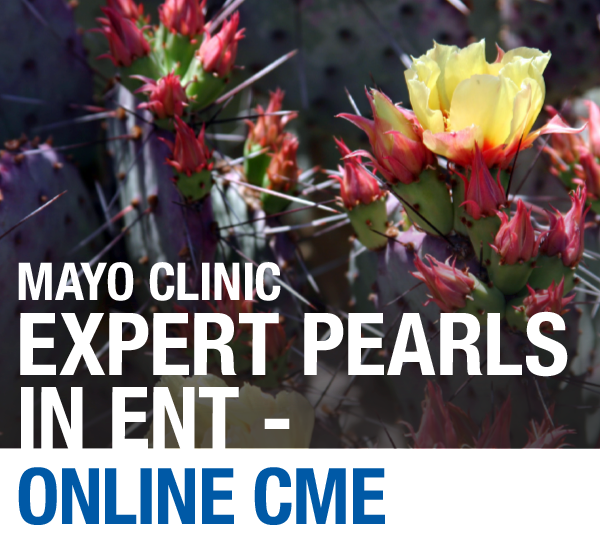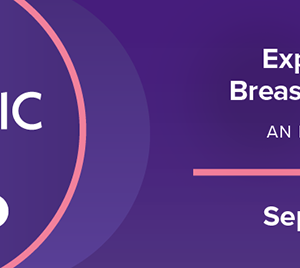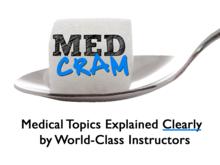This Mayo Clinic online course focuses on select topics of contemporary interest to Otolaryngologists. The course is richly illustrated with pictures, figures and videos. Each subject matter is covered by expert subspecialists who share their pearls in managing these conditions.
“Frontal Sinus Surgery- Systematic Technique” is designed for those who wish to undertake formal frontal sinus dissection. This part will comprehensively cover the related surgical anatomy and helpful instrumentation. The basic technique in frontal sinusotomy (Draf IIA) will be detailed via figures and videos. Indications, steps and concepts in advanced surgical techniques will be also discussed. The course will not cover balloon-only procedures.
“Pearls in Rhinology” will discuss updates in management of epistaxis, chronic sinusitis without nasal polyps, allergic fungal sinusitis and Eustachian tube dysfunction.
“Pearls in Laryngology” will detail Killian-Jamieson diverticulum, management of recurrent laryngeal nerve transection, laryngeal oddities, muscle tension dysphagia, and considerations in communicating with singer patients.
“Facial Plastic Surgery for the General Otolaryngologist” will cover rhinoplasty techniques and management of the paralytic eyelid. Rhinoplasty will focus on identification of preoperative findings and techniques for correction. Special focus on using costal cartilage (cadaveric or autologous) that are applicable to the general otolaryngologist. The course on management of the paralytic eyelid will dive deeply into the issues that arise with both the upper and lower eyelid when paralysis is present. This will include discussion of medical management and surgical treatment options with special focus on the bipedicled orbicularis oculi musculocutaneous flap.
Target Audience
The course is designed primarily for Otolaryngologists. Certain sections may be of interest to Speech and Language Pathologists, NPs and PAs with practices dedicated to Otolaryngology
Learning Objectives
Upon completion of this activity, participants should be able to:
Frontal Sinus Surgery – Systematic Technique
– Identify and correlate endoscopic landmarks to simulate a 3D construct of the frontal sinus outflow tract.
– Differentiate frontal techniques based on extent of surgery (Draf I-III)
– Describe steps and instruments for “standard” endoscopic frontal techniques (Draf I, Draf IIA)
– Enumerate indications and steps of advanced frontal techniques
Pearls in Rhinology
– Evaluate a laddered approach to the management of epistaxis
– Classify subtypes of chronic rhinosinusitis without nasal polyps
– Discuss the pathophysiology and inflammatory mechanisms of allergic fungal sinusitis
– Assess treatment strategies for dilatory Eustachian tube dysfunction
Pearls in Laryngology
– Recognize the differences between a Killian-Jamieson and Zenkers diverticulum
– Identify the appearance of different rheumatologic diseases of the larynx
– Examine the theoretical framework for muscle tension dysphagia (MTDg)
– Identify how singers describe vocal function and voice problems
Facial Plastic Surgery for the General Otolaryngologist
– Identify cases where rib grafting may be beneficial
– Demonstrate diced cartilage grafting for dorsal correction and/or dorsal augmentation
– Assess the paralytic eyelid by history and physical exam
– Identify medical and surgical management options for the paralytic eyelid
|
Program
Frontal Sinus Surgery – Systematic Technique |
|
|
|
| Pearls in Rhinology Michael J. Marino, M.D. |
|
|
|
|
| Pearls in Laryngology William (Will) E. Karle, M.D. and Christina H. Kang, CCC-SLP |
|
|
|
|
|
| Facial Plastic Surgery for the General Otolaryngologist Brittany E. Howard, M.D. |
|
|






